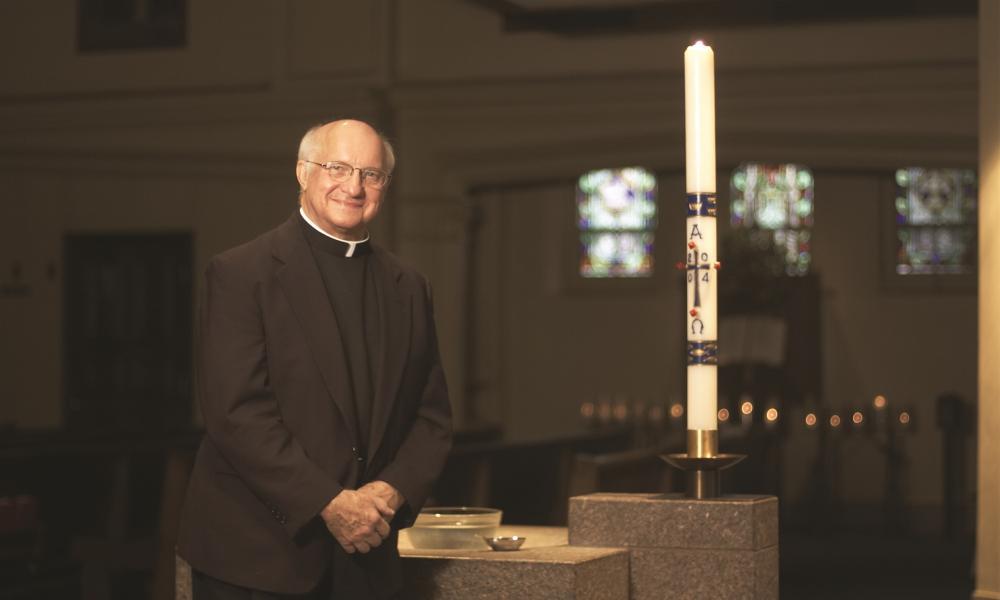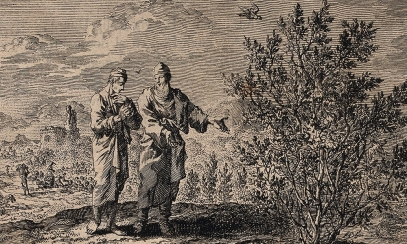
Vocations Part 1: What Does God Want Me to Do With My Life?
Who Are You Called to Be? Your Vocation is a Gift From God to Us All.
Who Are You Called to Be? Your Vocation is a Gift From God to Us All.
A series on Vocations By: Fr. Matt Fedewa and Elizabeth Solsburg, Editorial Director for FAITH Magazine.
A series on Vocations By: Fr. Matt Fedewa and Elizabeth Solsburg, Editorial Director for FAITH Magazine.
When I was a pastor, my parish used a bulletin insert service that sent us great material every week. One day, however, I opened the box and found fliers that read, Do Not Volunteer in your Parish! “Hey,” I thought, “this is ridiculous. We need volunteers.” I told my secretary not to use them, but then I took a closer look. The message wasn’t giving parishioners permission to sit back and do nothing, trusting that the ordained clergy would take care of everything. The analogy was this – does a mother wake up in the morning and make a decision whether she’ll volunteer to be a mom that day? Of course not – being a mother is who she is, not simply something she does. In the same way, being active members of our parishes – participating, giving and doing God’s work – defines who we are by virtue of our baptism. We don’t ‘volunteer’ in a parish any more than we volunteer to be members of our families.
We are all committed, by our baptism and confirmation, to continued formation in our Catholic identity and to live out that commitment in mission. As St. Thomas Aquinas said, “Our actions flow from who we are.”
We live in a time when many people seem to want Christ, but not the Church. They don’t seem to realize that the Church is the body of Christ, inseparable from him. Therefore, we are called to be his hands, feet, ears and eyes in the world. Our mission is three-fold: we are called to worship, witness and service. This echoes the three-part anointing of our baptism as priest, prophet and servant. In worship, we join our daily labors and sufferings to the sacrifice of the Eucharist. We witness to the faith in our everyday endeavors in our workplace and family. We serve our brothers and sisters in the Lord through our participation in ministerial activities, our stewardship, our care for the poor and needy among us.
Each one of us is called to holiness; from that call grows our mission. If we desire holiness – and wholeness – we must integrate who we are with what we do. No ministry can be effective unless it is truly motivated by the Holy Spirit, unless we are committed in love to our relationship with God. It is in our dialogue with him that we hear the still, small voice of love drawing us closer to him and to our purpose as his beloved.
– Fr. Matt Fedewa as told to Elizabeth Solsburg
What does God want me to do with my life? We all must discern God’s will
Everyone discerns since life requires us to make choices daily. The verb to discern comes from the Latin verb discernere which means to separate, to distinguish accurately one object or one option from another.
When we are speaking about a “call from God,” or a ‘vocation,’ there is also the need to discriminate – is this ‘call’ truly from God? And what is God asking of me?
There are at least three presuppositions in the case of spiritual discernment:
- a desire to do God’s will,
- openness to God
- a knowledge of God.
In Weeds Among the Wheat, Thomas Green, S.J. uses a simple example to illustrate this knowledge and will of God. He recalls going with his mother to buy neckties for his father for Father’s Day. As she surveyed a whole table covered with neckties for sale, she quickly selected four or five that he would like. Then she inspected these more closely and chose the two that would please him most. It was evident she knew what he really liked. How? Only because she had shared life and love with him for 40 years. Fr. Green admits – as a son, a missionary for years in another land, I ‘knew’ my dad – facts about him, but I did not ‘know’ him as Mother knows him.
Spiritual discernment begins and ends in the faith conviction of the reality of God who created us and is revealed by Jesus to be our loving parent. Discernment also presumes one is striving to know God as lovers know each other, because that is how our God knows us. God wills our good. Familiarity with God over a period of time gives us a sense of what God wants for us and would like as a free gift from us.
– Fr. Matt Fedawa
Theology focus – What is the call of the baptized?
The Second Vatican Council devoted much time, space, and care to discussing the role of the laity within the Church. The Council recognized the indelible mark left on all persons’ souls by virtue of their baptism, and wrote extensively to encourage and exhort the laity.
Although there are essential differences between the common priesthood of the faithful and the hierarchical priesthood, each shares in the one priesthood of Christ. (Lumen Gentium 10)
Through baptism, we are called to worship and to profess before the whole world the faith we have received. In confirmation, we are more perfectly bound to the Church and endowed with special strength of the Holy Spirit. We are, as Christians, obliged to spread the faith by word and deed.
The faithful, by virtue of their royal priesthood, participate in the offering of the Eucharist. “Taking part in the eucharistic sacrifice, the source and summit of the Christian life, [the faithful] offer the divine victim to God, and themselves along with it. And so it is that, both in the offering and in holy Communion, each in his own way, though not of course indiscriminately, has his own part to play in the liturgical action.” (Lumen Gentium 11)
The Council reminded all of us that we are called to the “perfection of sanctity by which the Father himself is perfect.” (Lumen Gentium 11) God calls us to that perfection – that life of holiness and wholeness – regardless of our state in life. He opens the dialogue in love, and it is up to us to respond.
– Elizabeth Solsburg



